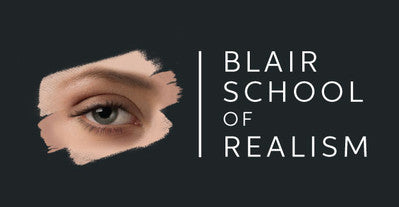Here, we talk about the main regrets of an artists' experiences. This applies to all art forms, including airbrush, oils, as well as the performing arts.
1. Undervaluing work - Most artists see only their mistakes when they look at their work, and assume the client sees the same problems. Unfortunately, this results in the artist assessing the value of their work below what it is worth, and they set their price accordingly because they feel their work is worth far less than "normal" prices.
This leads to regret, due to the loss of income from undervalued work.
The solution is to have a third party make a fair assessment of your work, preferably a professional, such as a gallery owner. If that is not possible, then determine how much you want to get paid per hour, multiply it by the number of hours you have in your work, and then double it.
2. Poor time management - Who among us wouldn't want more time to paint? The problem is that artists allow distractions, such as social media, television, phone calls, and other activities that keep them away from the easel. At the end of the day, they regret that they didn't paint.
The solution is to prioritize and manage your time. Put the darn phone away, and focus.
3. Ignoring constructive feedback -This is a big one because it arrests the artist's development.
There is a syndrome called Dunning Kruger where an incompetent person imagines themselves as being competent, and unaware of their true lack of capability. It is a true belief, and not necessarily about ego.
This reduces the artists' receptiveness towards constructive criticism of their work. After all, why should they listen if they believe that they are already a master?
The reality is that you will never stop learning unless you believe that you can learn no more. Then you will stop.
The artist's regret here is the realization that they could have gone further if they had only been more receptive towards criticism.
4. Not pursuing opportunities - Success can often be attributable to networking. Some artists, being a bit introverted, allow opportunities to pass them by. They avoid people, avoid promoting their art, and decline invitations to participate in exhibitions.
The solution is to hire an artist representative to manage your marketing. It is far easier for someone else to boast about the virtues of your art than it is for you to toot your own horn. Besides this gives you time to concentrate on what you really enjoy: painting.
5. Managing money - One of the biggest stress triggers is finances. The idea of shopping therapy sounds nice until the bill comes due. Artists are notorious for trying to purchase their way to success, rather than invest time and practice. The latest gimmick isn't going to magically transform your work. You need to spend less time shopping and spend more time painting.
With art, cash flow isn't always consistent, so you should also prepare for lean times. I suggest taking a listen to financial guru Dave Ramsey.
6. Lacking direction - There's an epidemic of lost artists who don't know what to paint. Not knowing which way to go., they just sit idle.
To avoid this, commit yourself to making one drawing per day, to keep those artistic chops primed. You never know what idea may spring from it. Try exploring images for inspiration on Pinterest or visit some art galleries.
7. Working for exposure - You'll often find clients wanting to offer you exposure over money. Don't be fooled into thinking this will work well. Take the money. You will gain exposure anyway from doing the job.
8. Failure to find balance - Sometimes the appeal of painting can be so overwhelming that you forget what time it is, or obsess over a commission and forget other aspects of life, such as health, family, and friends. The artist's regret is often that they didn't find time for those they loved.
This goes back to managing your time. Allow time for what's important. Try to locate and eliminate wasteful activities and dedicate your time to the things and people you love.
9. Hating your own work- As a teacher, I can't count the number of times that art students fall into despondency over some tiny mistake they made in their work. This is called the artist's curse.
10. Allowing stagnation. This comes from just sitting there idle, and not knowing what to do. Some people see this as a lack of inspiration or motivation. Either way, paralysis sets in, and all progress stops.
The key to solving this is to develop habits that force you to paint between say, certain hours of the day. Think of it like going to the gym. You may not feel like it sometimes, but you should go anyway because once you go, you'll be glad you did.
Identifying problems is the first step towards solving them. Instead of wallowing in regret, push past it, and take action toward positive goals. Yes, it's always easier said than done, but if you fail to act, you will only be piling on more regret.
The 10 biggest regrets for Artists
Excl. postage




